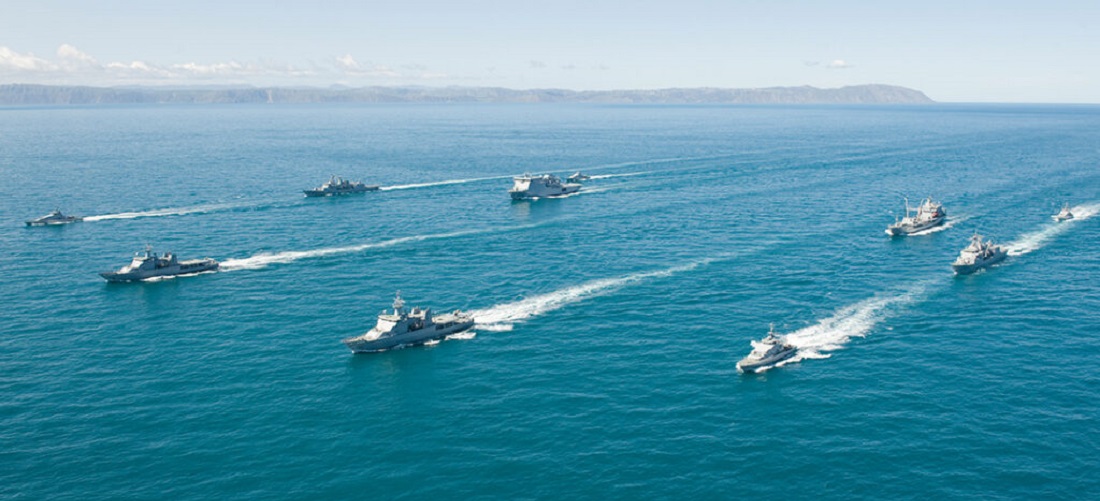
Red Sea crisis pushes up delivery times for European manufacturers
Feb, 02, 2024 Posted by Gabriel MalheirosWeek 202405
UK and eurozone manufacturers said their supply chains deteriorated for the first time in a year in a sign of the wider disruption to trade caused by Red Sea attacks by Houthi militants, according to a closely watched survey published on Thursday.
The supplier delivery times index, part of the S&P Global purchasing managers’ index (PMI) survey published on Thursday, fell below a score of 50 in both economies in January, reflecting that a majority of businesses are reporting lengthening delivery times for supplies to reach their factories.
The delays to delivery times will add to fears that ongoing Red Sea disruption will create inflationary pressure on Europe’s economy and difficulties for European manufacturers struggling with weak demand.
The survey is “definitely a sign that we are starting to see the Red Sea actually impact businesses in Europe, and in fact quite a lot earlier than we expected the impact to be”, said George Moran, an economist at Nomura.
The result, the first time the index has fallen below 50 since January 2023 and its lowest level in 14 months, follows the decisions of most container ships to avoid passing the Bab el-Mandeb Strait, a maritime chokepoint linking the Red Sea and the Indian Ocean.
Iranian-backed Houthi militants have stepped up attacks on vessels passing the strait en route to Europe via the Suez Canal since mid-October.
The Red Sea route normally accounts for 15 per cent of total global sea trade, including 8 per cent of grain, 12 per cent of seaborne oil and 8 per cent of seaborne liquid natural gas.
Businesses in most countries in Europe reported a deterioration in their supply chains, including major economies like Germany, France, and Italy. Manufacturers in Greece, one of the EU states closest to the Suez Canal, were among the hardest hit, according to the survey.
Some carmakers relying on rerouted vessels for components have already felt the impact, with Tesla in Germany, Volvo Cars in Belgium and Suzuki in Hungary halting certain vehicle production lines.
Companies are also facing increased shipping costs as a result of the Houthi attacks. Freight rates from east Asia to the Mediterranean are up 290 per cent compared with early November, according to the Freightos Baltic index, with a similar growth in the Asia to north Europe route.
“The attacks in the Red Sea are leaving their mark,” said Norman Liebke, economist at Hamburg Commercial Bank, which compiled the French survey together with S&P Global. He added, however, that the levels of decline in the index were “a far cry” from those seen during the pandemic, when widespread supply chain disruptions caused prolonged shortages of materials for manufacturers globally.
Since the first Houthi attack on October 19, Red Sea traffic has dramatically fallen. In the seven days to January 28, trade volumes in the Bab el-Mandeb Strait, which vessels pass through to get to the Suez Canal from the Indian Ocean, were down 65 per cent compared with the end of October, according to IMF PortWatch, which provides real-time indicators of port and trade activity across the world.
In some countries, such as the UK, the disruptions contributed to higher input costs in January.
Rob Dobson, director at S&P Global Market Intelligence, said that UK businesses participating in the survey estimated that a minimum of 12 to 18 days could be added to some expected deliveries, “disrupting production schedules and raising inflationary pressures at a time when manufacturers are already struggling with weak demand both at home and overseas”.
Many economists have raised concerns over the impact on the global inflation outlook from the crisis in the Red Sea.
Oliver Rakau, economist at Oxford Economics, said that “disruption to shipping through the Red Sea now looks likely to keep transport costs elevated at least for the next few months”. He estimated that would add 0.3 to 0.4 percentage points to the eurozone headline inflation measure, with “the brunt of the impact coming in the second half of the year”.
The overall inflationary risks “are not going to be massive,” said Moran at Nomura, because alternative delivery routes are available and disruptions are not occurring in a period of high demand.
The impact of the events in the Middle East on consumer prices “has so far been limited,” said Andrew Bailey, governor of the Bank of England, on Thursday, “but that could change if trade disruptions continue and this poses an upside risk to our inflation projection”.
Source: Financial Times
Click here to visit the original publication: https://www.ft.com/content/6c114551-9689-4a3c-b1cc-71790853c636
-
Ports and Terminals
Dec, 11, 2024
0
New organizations join Port of Santos ESG Manifesto initiative
-
Coffee
Jun, 14, 2023
0
Brazil records 13.6 million coffee bags exported from Jan to May 2023
-
Oil and Gas
Apr, 04, 2019
0
Argentina plans 1,200 km natural gas pipeline from Vaca Muerta to Buenos Aires
-
Economy
Jun, 22, 2023
0
China’s imports of Brazilian products surge to USD 89.4 bn in just 20 years



